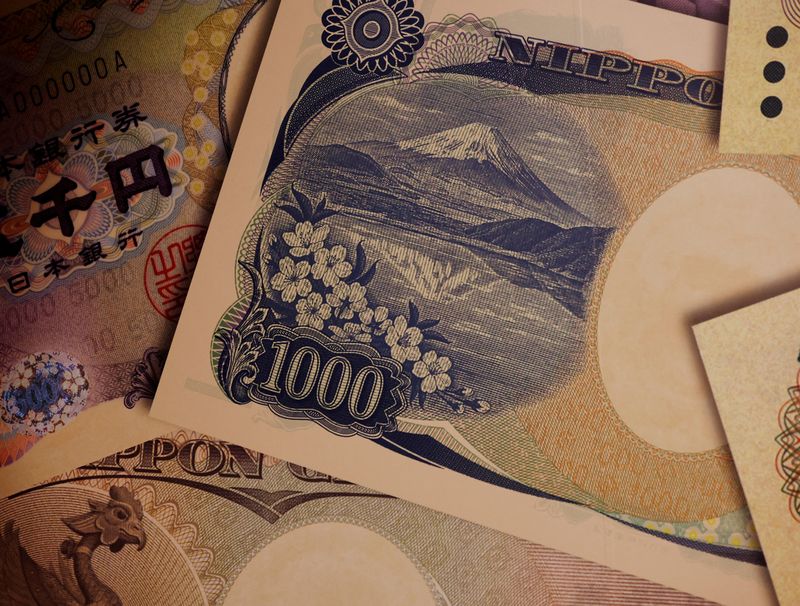TOKYO (Reuters) - Japanese authorities held an emergency meeting this week to discuss the weak yen and suggested they were ready to intervene in the market to stop what they described as disorderly and speculative moves in the currency.
The yen rallied on the news, coming off 34-year low of 151.97 per U.S. dollar after top currency diplomat Masato Kanda said he "won't rule out any steps to respond to disorderly FX moves".
Japan last intervened in October 2022 as the yen plumbed lows near 152 per dollar. It was then estimated to have spent as much as 9.2 trillion yen ($60.78 billion) defending the currency.
Here is a timeline of moves in foreign exchange markets by the Bank of Japan (BOJ).
March 27, 2024 - Bank of Japan, the Finance Ministry and Japan's Financial Services Agency held a meeting after the yen fell to a 34-year low against the dollar, and suggested they were ready to intervene.
Oct. 21-24, 2022 - The dollar plunged more than 7 yen at one point on Oct. 21 in a decline sources attributed to authorities' yen buying. Japanese Finance Minister Shunichi Suzuki declined to confirm whether the government had intervened in the currency market.
Sept. 7, 2022 - Top government spokesman Hirokazu Matsuno expresses concern about "rapid, one-sided" moves seen in the currency market after the yen weakens beyond 143 per dollar.
June 10, 2022 - Japan's government and central bank issue a rare joint statement saying they are concerned by recent sharp falls in the yen after it weakens beyond 134 per dollar.
Aug and Oct, 2011 - Japan intervenes to curb gains that officials fear could derail recovery from an economic slump triggered by a massive earthquake and tsunami on March 11, 2011.
March 18, 2011 - Group of Seven (G7) nations jointly intervene to stem yen strength when the currency spikes to a record high in the aftermath of the earthquake.
Sept. 15, 2010 - Japan intervenes in the currency market for the first time in six years, selling yen to stem a rise in the currency after the dollar hits a 15-year-low at 82.87 yen.
March 2004 - A 15-month campaign to curb the yen's rise comes to an end after Japan has spent 35 trillion yen, or more than $300 billion, on intervention.
May-June, 2002 - The BOJ intervenes to sell yen, often supported by the U.S. Federal Reserve and European Central Bank (ECB). The yen continues to gain.
Sept 2001 - The BOJ intervenes to sell yen after the Sept. 11 attacks in the United States. The ECB and New York Fed operate on behalf of the BOJ.
January 1999 to April 2000 - The BOJ sells yen at least 18 times, including once via the Fed and once via the ECB, due to worries the currency's strength will choke economic recovery. The yen continues to strengthen.
1997 - 1998 - The Asian financial crisis sees the yen weaken, reaching nearly 148 per dollar in August 1998, even after U.S. authorities join the BOJ to buy yen.
April 1994 - August 1995 - The dollar sinks to a record low against the German mark and a post-war low against the yen. The United States intervenes repeatedly, often with Japanese and European central banks, to prop up the greenback.
1993 - The BOJ sells yen through much of the year to curb its strength.
1991 - 1992 - The BOJ intervenes to support the yen, selling U.S. dollars.
1988 - The dollar falls to 120.45 yen on Jan. 4, at that time a post World War Two low, in Tokyo trade. The BOJ intervenes to buy dollars and sell yen.
1987 - In February, six of the G7 nations sign the Louvre Accord, which aims to stabilise currencies and halt the dollar's broad decline.
1985 - The Group of Five industrial nations, the predecessor to the G7, sign the Plaza Accord, in which they agree that the dollar is overvalued and that they will move to weaken it.

1973 - Japanese monetary authorities decide to let the yen float freely against the greenback.
($1 = 151.3600 yen)